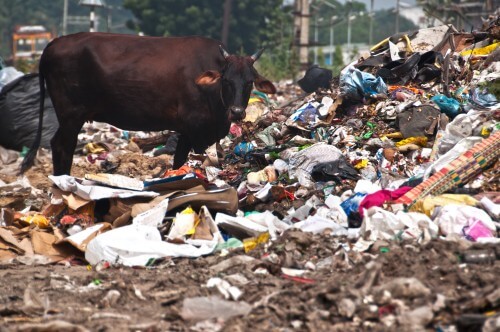In the last week of June 2014, a high-level environmental conference was held in Nairobi, Kenya, which dealt, among other things, with the issue of plastic's impact on the environment

In the last week of June 2014, an environmental conference of the highest level that exists was held in Nairobi, Kenya. The conference was attended by scientists and economists as well as representatives from 193 countries, representatives of non-governmental organizations and industry representatives.
Among the other topics at the conference, the participants were presented with two reports on the impact of plastic on the environment, the same product that occupies an important role in modern life and due to lack of awareness and carelessness in its use seriously harms the environment and everything in it.
According to the United Nations Environment Program (UNEP) "Plastic carelessly thrown away poisons the global food chain." The report illustrates how plastic kills fish and other marine creatures (which has been known and accepted for a long time), but the innovation is that plastic particles are served to us in food, and it is clear that it is toxic food.
The authors of the report explain that plastic products that are washed down rivers and dispersed in the seas and oceans, cause worldwide damage that amounts to more than 75 billion dollars every year. Damages resulting from the pollution of marine life systems, including causing death to fish, turtles, marine mammals and others that swallow the plastic and suffocate. Corals are damaged when the plastic covers and suffocates the reef. On land, additional damage is caused when animals (we have goats and deer) eat the bags that create a blockage in the digestive tract and the animal dies of starvation.
Added to this are damages that result from air pollution when the plastic burns. The plastic is distributed wherever possible and dispersed (with the wind) from garbage sites. The polluting plastic remains are carried by the ocean currents to great distances, eaten by fish and thus reach our table as food saturated with toxic chemicals. The plastic pollution that reaches our table is mainly "microplastics", those tiny particles that do not break down and are also found in many cosmetic products. The tiny microplastic particles do not get out of the system in purification plants and continue to flow into water sources - rivers, streams and seas.
It should be clarified that in most cases the microplastic particles are derived from thin (disposable) bags, which are less than 30 microns in diameter. In some supermarkets, "green" bags are distributed that supposedly "disintegrate". And it is not, since the bags do disintegrate into tiny particles, but there is no chemical or biological decomposition. Those particles are the microplastics, whose impact is bad, both because of the toxicity of the particles themselves and because they absorb toxins from the environment and distribute them to the food chains of the entire world.
In a separate study conducted by researchers from the University of Western Australia and published in the journal PNAS, the researchers found that there is a large deficiency in the amounts of plastic floating in the oceans compared to the expected amounts. It turned out that most of the plastic "breaks down" into those tiny particles that are eaten by fish, bacteria and zooplankton and thus penetrate the food chains in the vast oceans of the entire world.
The first study that led to the report clarifies that companies are obliged to take into account the ecological footprint of plastic just as it is done for carbon, water or forests. Companies must mitigate the risk and do everything for a sustainable activity that will prevent plastic damage.
The report will accelerate activities to prevent the production and use of plastic bags, prevention and bans that already exist in Europe and many African countries (in some of them they joke and call the bags hanging on trees the "national flower"). In Kenya, a law is being passed that will allow the police to search homes, businesses, factories and other buildings for the banned plastic. The police will be allowed to confiscate everything related to plastic and its production, and those who find the prohibited product in their possession are expected to be imprisoned and heavily fined.
The solution to the dangers of plastic is a significant reduction in use, a general cessation of the distribution of "undershirt" bags in businesses and supermarkets and a transition to maximum recycling of all plastic products.
This is not the first time that I refer to the problem of plastic, but this time there is the respectable backing of UNEP. In addition to this, our Minister of the Environment is working on the issue, so we can hope that soon we will follow in the footsteps of developing African countries and our environment will be free of "plastic flowers".

3 תגובות
It's really important, well done!
I tried to understand how it works... without success,
In any case, it is clear that there will be a high cost,
Which brings us back to the stupidity of creating serious problems out of negligence
The stupidity that results from short-sightedness or intermittent blindness,
The stupidity that comes from the greed of a few who cause damage to everyone.
You can go on and on...
What do you think about this:
http://inhabitat.com/interview-boyan-slat-teenage-inventor-of-the-ocean-cleanup-array/boyan-slat-interview-header/